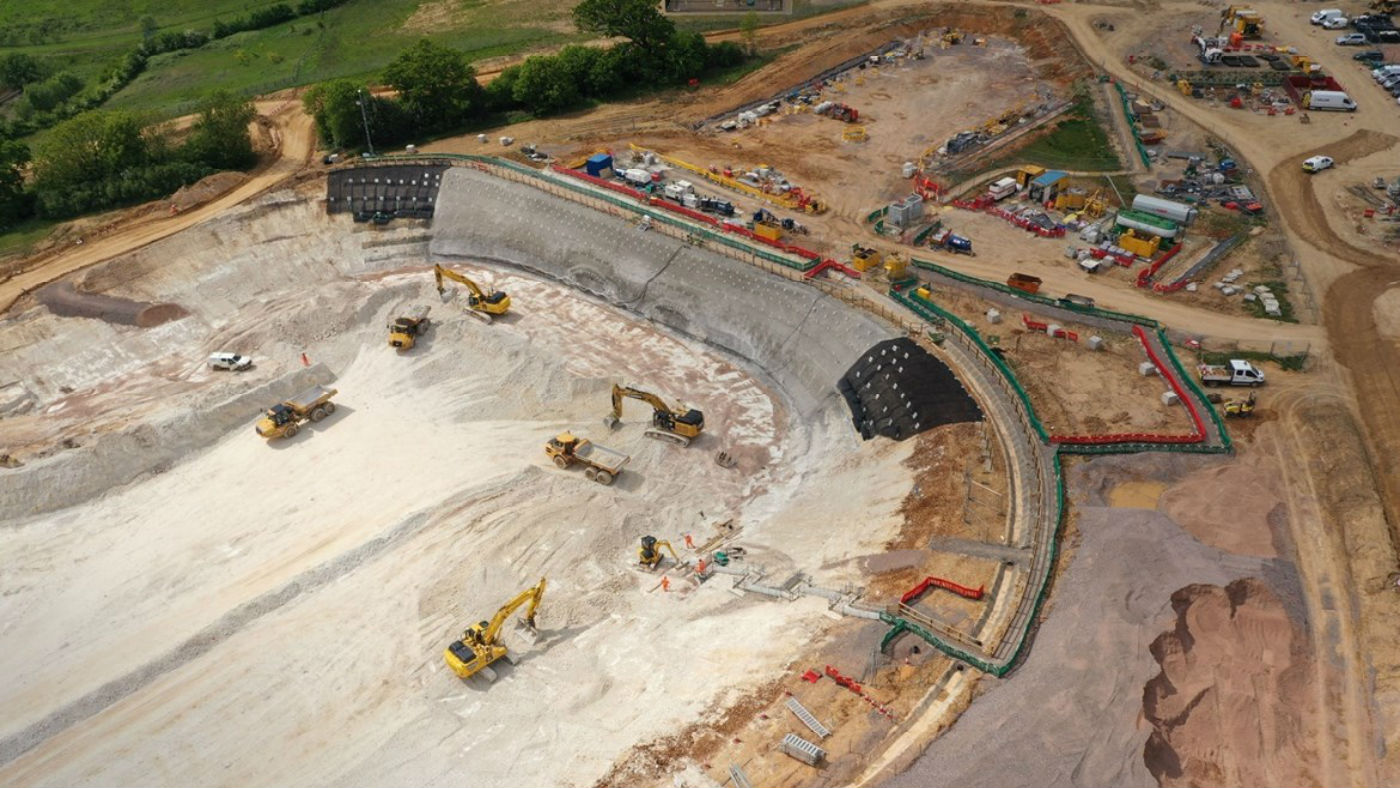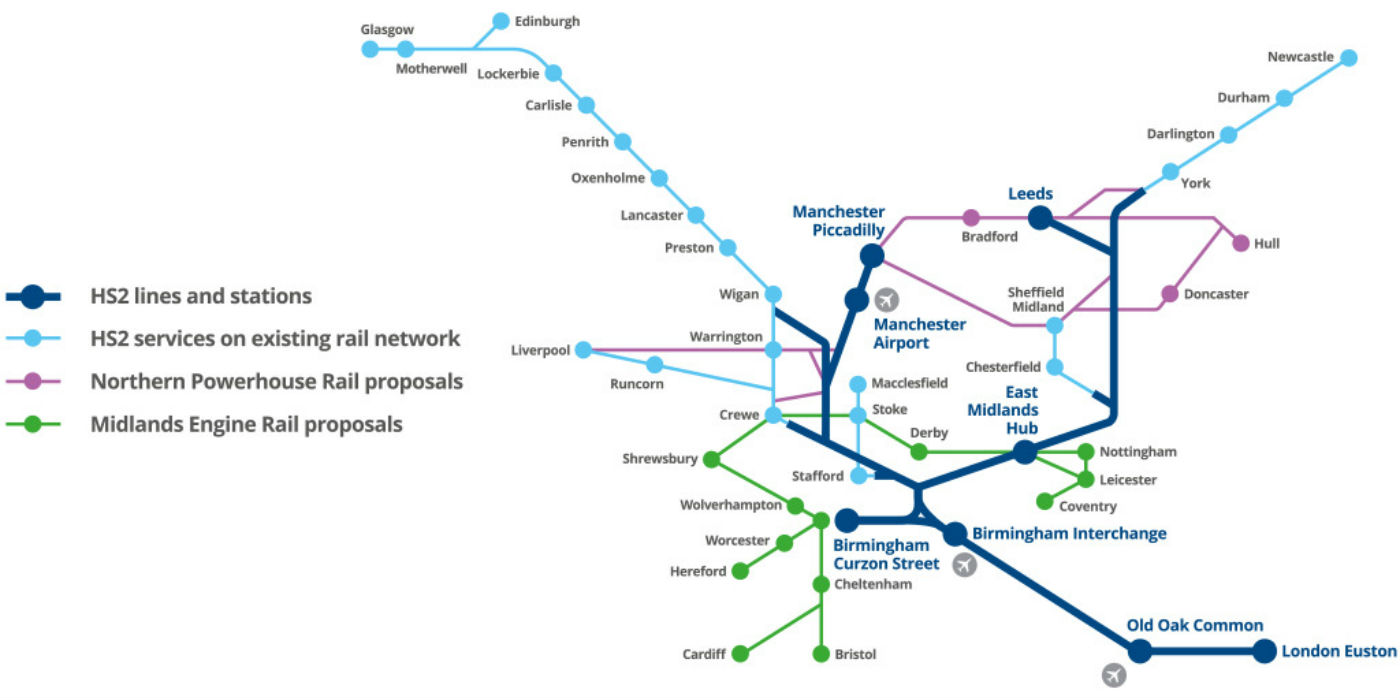HS2: work starts on controversial £100bn high-speed rail line
PM says project will create 22,000 jobs and ‘fire up economic growth’

A free daily email with the biggest news stories of the day – and the best features from TheWeek.com
You are now subscribed
Your newsletter sign-up was successful
Construction of the much-delayed High Speed 2 (HS2) rail project is finally kicking off from today.
The controversial rail line linking London, Birmingham, Manchester and Leeds is expected to cost £106bn and to take up to 20 years to complete, The Guardian reports.
Boris Johnson says the project will create 22,000 jobs and “fire up economic growth”.
The Week
Escape your echo chamber. Get the facts behind the news, plus analysis from multiple perspectives.

Sign up for The Week's Free Newsletters
From our morning news briefing to a weekly Good News Newsletter, get the best of The Week delivered directly to your inbox.
From our morning news briefing to a weekly Good News Newsletter, get the best of The Week delivered directly to your inbox.
“HS2 is at the heart of our plans to build back better,” added the prime minister, who was expected to attend a “shovels in the ground” event today to mark the official launch of the project.
“As the spine of our country’s transport network, the project will be vital in boosting connectivity between our towns and cities.
“But HS2’s transformational potential goes even further. By creating hundreds of apprenticeships and thousands of skilled jobs, HS2 will fire up economic growth and help to rebalance opportunity across this country for years to come.”

What is the HS2 route?
A free daily email with the biggest news stories of the day – and the best features from TheWeek.com
The high-speed line will provide fast and frequent connections between eight of the UK’s largest cities: Birmingham, London, Leeds, Manchester, Liverpool, Sheffield, Edinburgh and Glasgow.
The first phase will connect London to the west Midlands and is due to be completed between 2029 and 2033. The second phase, which will be split into two parts, will connect the west Midlands to Crewe, Leeds and Manchester is due to be completed between 2035 and 2040.
HS2 services will also be provided to Glasgow and Edinburgh on the existing West Coast and East Coast mainline networks.
Sky News reports that “the aim is to run 18 trains an hour in each direction to and from London - at speeds of up to 224mph - compared to between two and six an hour on Europe’s high-speed railways”.
Why is HS2 so controversial?
Critics have hit out at the government over the spiralling costs, delays and negative environmental impact of HS2.
In January, the National Audit Office warned that the project was over budget and behind schedule because the complexity and risks of the multibillion pound project had been underestimated.
When the rail link was first proposed in 2009, the projected cost was £37.5bn, with that estimate rising to £56bn by 2015. But the government’s official review into HS2 warned that the project was likely to cost in excess of £100bn.
Dispute over job numbers
The Stop HS2 pressure group says opposition to the project is continuing to increase, owning to the “poor economic case, the dire effects on the environment, and the multiple better ways of spending the money earmarked for HS2”.
And while 22,000 new jobs are expected to be created as a result of the rail line, the government is “rather less keen to mention that HS2 is projected to permanently displace almost that many jobs”, the group adds.
Stop HS2 campaign manager Joe Rukin said: “Trying to spin HS2 as a job creation scheme is beyond desperate. Creating 22,000 jobs works out at almost £2m just to create a single job.”
However, Transport Secretary Grant Shapps has disputed those figures. Appearing to the BBC’s Breakfast programme this week, he said: “I can’t see how there’s an argument that making it easier to get about this country is somehow going to destroy jobs, quite the opposite in fact.
“It’s clearly going to make the economy level up. Find those left behind areas, that have found themselves too disconnected before and join it together.”
Mike Starling is the former digital features editor at The Week. He started his career in 2001 in Gloucestershire as a sports reporter and sub-editor and has held various roles as a writer and editor at news, travel and B2B publications. He has spoken at a number of sports business conferences and also worked as a consultant creating sports travel content for tourism boards. International experience includes spells living and working in Dubai, UAE; Brisbane, Australia; and Beirut, Lebanon.